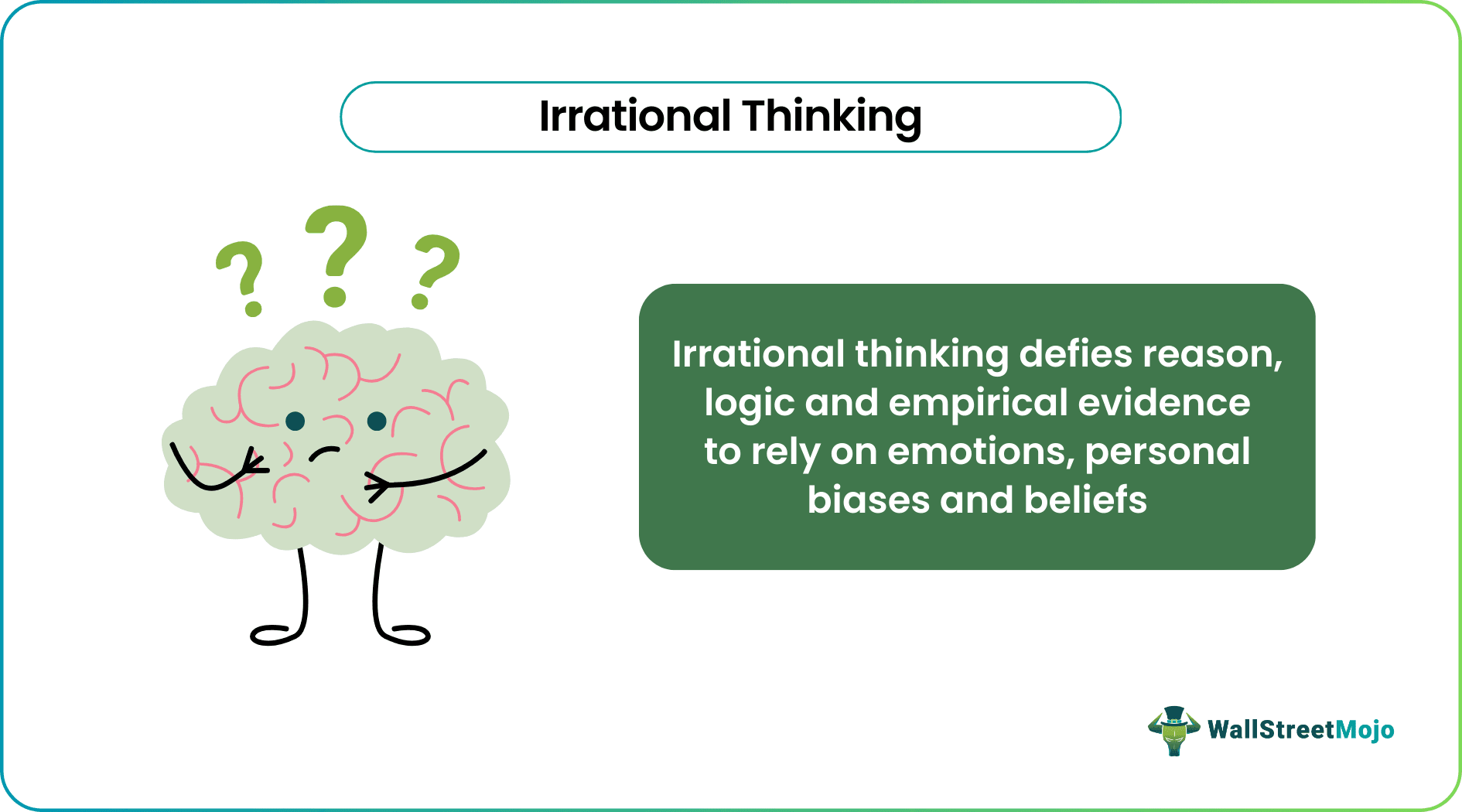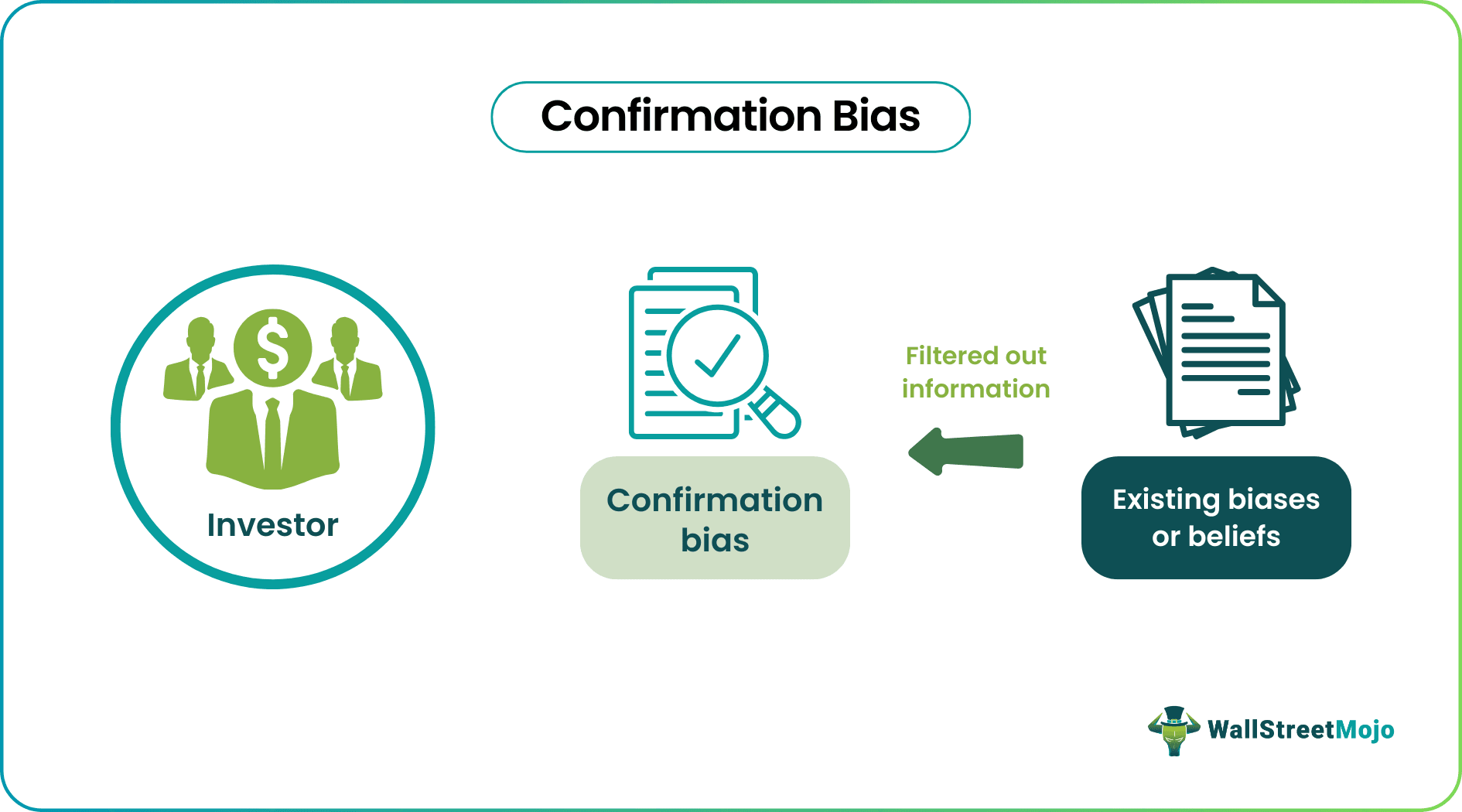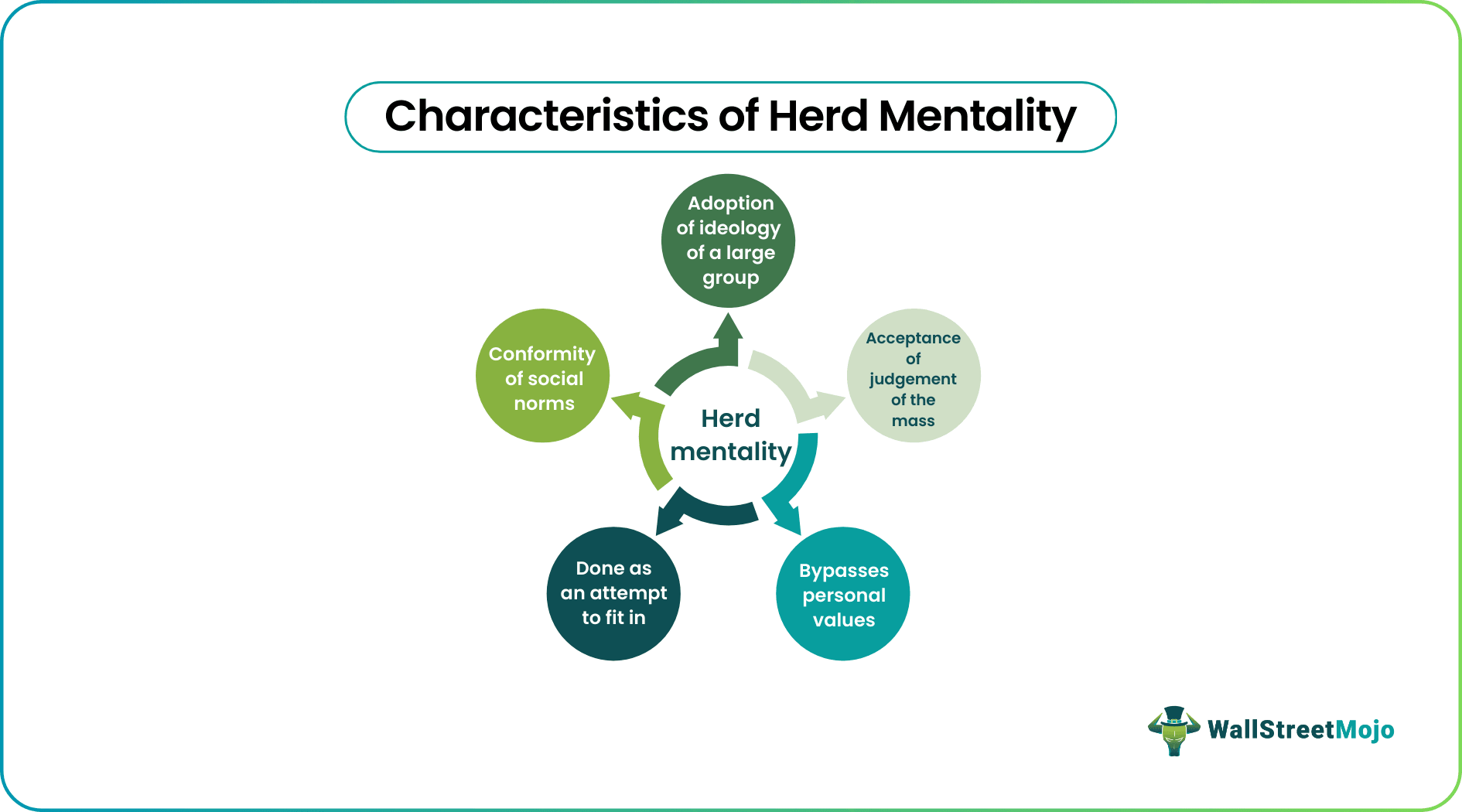Table Of Contents
Irrational Thinking Meaning
Irrational thinking defies reason, logic, and empirical evidence to rely on emotions, personal biases, and beliefs. It is the opposite of rational thinking. Irrational thinking is a major cause of inefficient decision-making. The consequences of inefficient cognition become serious when the stakes are high; financial decision-making, leadership, research, etc.

Sometimes irrational thinking results in temporary happiness. This is due to false positivity—an optimistic perception of an individual's abilities. Irrational thinking exhibits itself as short-tempered or irresponsible behavior.
Table of contents
- Irrational Thinking Meaning
- Irrational thinking is the inability to analyze situations in a logical manner. It is usually caused by excessive reliance on emotions.
- The theory of irrational behavior defines that subconscious thoughts lead to irrational actions.
- Confirmation bias is an irrational cognitive process that involves favoring the information confirming one’s previously existing biases or beliefs.
- Generalization is a very common example of irrational thinking. The individual generalizes everything—a single experience is used to define overall patterns. Jumping to a conclusion is another common cause of irrational cognition.
Irrational Thinking Explained
Irrational thinking refers to the lack of logic and reason in one's cognition. It is the opposite of rational thinking; rational thinking is a logical process that relies on reason and empirical evidence. Also, irrational cognition is universal; everyone has irrational thoughts. This concept focuses on how one deals with irrational thoughts.
Anxious individuals often misinterpret irrational thoughts and consider them facts. Everything that pops up in one’s head is not correct by default. Rational thinking is an approach where the individual questions thoughts and ideas using logical reasoning and evidence.
For example, if an individual experiences palpitation, the individual might have an irrational thought similar to, 'I think there is something wrong with my heart, and I am dying.' Irrational cognition is the tendency to cling to irrational thoughts. The individual might even start searching for heart attack symptoms on the internet. Inaccurate thoughts reinforce negative thinking patterns, and emotions convince people that inaccurate thoughts are real.
Some of the common causes of irrational cognition are as follows:
- There are many common irrational cognition patterns, confirmation bias is one among them. It is an irrational cognitive process that involves favoring the information confirming one’s previously existing biases or beliefs. Hence an investor would only seek information that will guarantee their existing belief and filter out information based on that. Or, if an individual likes a particular color, they are more likely to buy an unnecessary product just because they like the color.

- Experiential bias occurs when an investor’s memories or experiences from past events make them choose sides even when such a decision is not rational. For instance, previous or current bad experience leads them to avoid similar positions.
- A familiarity bias is reflected when an investor prefers stocks from a familiar industry over stocks belonging to unrelated fields. In this process, they may lose new or innovative opportunities.
- Generalization is a very common example of irrational thinking. The individual generalizes everything—a single experience is used to define overall patterns. For example, an individual has a misunderstanding with one friend, but they end up generalizing that they are bad at communicating with everyone.
- Jumping to a conclusion is another common cause of irrational cognition. People try to assume what others are thinking; they assume others' intentions. For instance, based on nonverbal reactions, an individual assumes that the listener is not interested. Rational thinking, on the other hand, focuses on having as much data as possible and delays drawing conclusions without having evidence to back them up.

- Another common cognition inefficiency is herd mentality It is an irrational thought process where individuals adopt the ideology of a larger group and bypass personal rationality. They act in conformity to the group's beliefs assuming that everyone else has done their research. It mostly stems from an individual's need to fit in and adhere to social norms. Due to this behavior, individuals fail to reason before making decisions.
Many traders use Saxo Bank International to research and invest in stocks across different markets. Its features like SAXO Stocks offer access to a wide range of global equities for investors.
Examples
Let us look at some examples to understand irrational thoughts.
Example #1
As a customer in a mall, Sam came across signs for a product that said $999 instead of $1000, and she chose to purchase it because the price was below $1000. There was a negligible difference between $999 and $1000. There was not much gain saving that $1, but what made her choose to buy that product was the satisfaction of purchasing a product under $1000. This was rather an emotional decision; not a rational one.
A decision based on emotional reasons is a very common irrational behavior. Here, individuals consider their emotions as a fact. In other words, 'if we feel it, then it must be true, right?’ However, the emotional state of a person at a given moment is rarely indicative of reality.
Example #2
In share markets, we witness asset bubbles or stock market bubbles; these are examples of irrational cognition. When the price of a security starts increasing, investors get emotional and overtly enthusiastic. As a result, they make an irrational decision—they end up buying more shares of the particular company.
Such decision-making is not backed by market analysis or due diligence. So, when the economic bubble bursts, investors panic and start selling. During bubble bursts, investors incur heavy losses.
Irrational Thinking vs. Rational Thinking
Irrational thinking vs. rational thinking differences are as follows:
| Parameter | Irrational Thinking | Rational thinking |
|---|---|---|
| Definition | It is a thinking process that relies on emotions, past experiences, and personal beliefs | It is a thinking process that relies on reasoning, logic, and empirical evidence |
| Basis of thought | It is based on illogical factors | It is based on logic and backed by facts and evidence. |
| Emotional power | Excessive reliance on emotions overpowers logical thinking | Emotions make way to prioritize facts and evidence |
| Emotional Experience | Most of the actions are based on the emotional experience of the person | Rational thinking relies on facts and experiences of many |
| Achievements | It hinders the growth and success of an individual | It is an essential prerequisite for personal success |
Disclosure: This article contains affiliate links. If you sign up through these links, we may earn a small commission at no extra cost to you.
Frequently Asked Questions (FAQs)
Irrational thoughts are caused by anxiety, excessive reliance on emotions, and cognitive biases. They can also be caused by mental illnesses—psychosis, anxiety disorders, bipolar disorder, delusions, and obsessive-compulsive disorders.
The human brain comprises two halves—the left hemisphere and the right hemisphere. The left hemisphere processes numerical and verbal data in a rational manner. It is responsible for language, reasoning, and numerical functions.
It is difficult to eliminate irrational thoughts entirely. But one can control decision-making by making it a habit to rely on facts and evidence. The following steps are effective in checking irrational cognition:
Step 1 Identify irrational thoughts.
Step 2 Discontinue the irrational thought process.
Step 3 Replace irrational thought with a rational, evidence-based thinking pattern.
Recommended Articles
This has been a guide to irrational thinking and its meaning. We compare rational thinking vs irrational thinking, using definitions, illogical beliefs, & examples. You can learn more about it from the following articles -

